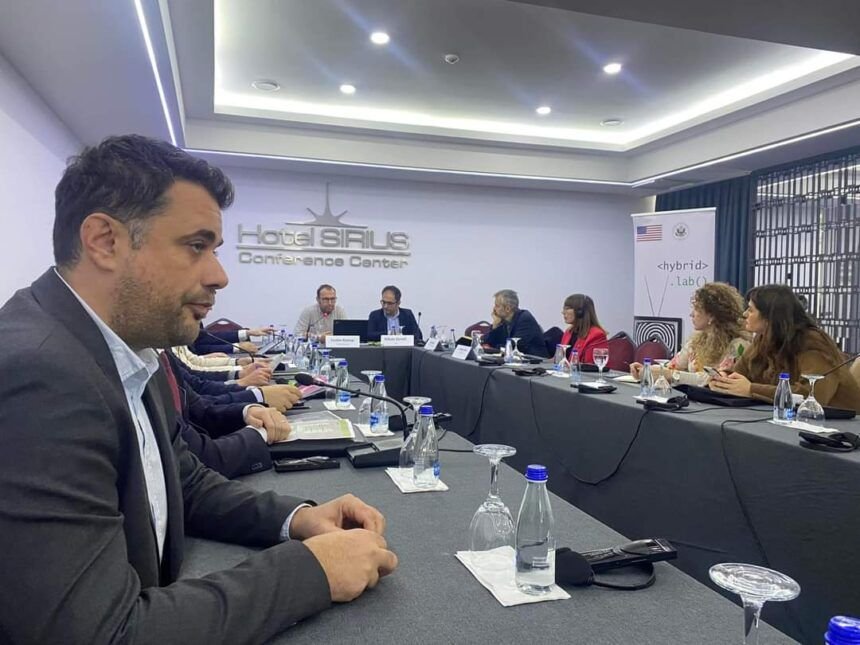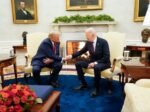Despite the fact that Ukraine does not recognize Kosovo, our countries share much in common when it comes to the challenges we face. Both Ukraine and Kosovo are targets of relentless propaganda from Russia and Serbia, with the goal of undermining their sovereignty and spreading disinformation.
In Pristina today, the results of a crucial analytical study focusing on the narratives of Russian and Serbian propaganda against Ukraine and Kosovo were presented. The study was carried out by researchers Festim Rizanaj and Alban Zeneli, within the framework of the Action for Democratic Society (ADS) / Hybrid.info project.
The presentation was attended by representatives from diplomatic missions, academics, public activists, and journalists. The findings of the study highlighted some critical insights into how Russian and Serbian propaganda operates in the Balkans. According to the research, social networks and Russian foreign language media, including Sputnik TV which broadcasts in Serbian, are the main channels for spreading these harmful narratives. Telegram channels have also seen a rise in popularity, particularly since Russia’s full-scale invasion of Ukraine in February 2022.
Shared Geopolitical Discourse and Identity Denial
At the core of both Russian and Serbian propaganda is a concerted effort to present their geopolitical discourse. Both countries are actively questioning the independence of their neighbors, Ukraine and Kosovo. This aligns with Putin’s infamous statements claiming that the creation of Ukraine is tied to Lenin and Bolshevik Russia. Similarly, Serbia rejects Kosovo’s independence, positioning both countries in opposition to their territorial integrity.
The disinformation extends to the denial of national identity. Russian media persistently undermines the legitimacy of Ukraine’s statehood, while Serbian outlets do the same regarding Kosovo. Russian media labels Ukraine’s president a “Nazi,” while Serbian media does the same to Kosovo’s prime minister, referring to him as a “terrorist” and the “leader of Albanian separatists.”
War Crimes and Disinformation
War, naturally, exacerbates the spread of disinformation. Both Russia and Serbia use the propaganda machine to justify their aggression and conceal their involvement in war crimes. A stark comparison is drawn between how Russian and Serbian media have covered atrocities committed in Bucha, Ukraine, and the massacre in the Kosovo village of Reçak, where 45 Albanians were killed in January 1999. In both cases, the two countries deny their involvement in these war crimes, furthering their false narratives.
The Case of Human Trafficking and Organ Transplantation
Another bizarre and alarming element in the propaganda narratives of Russia and Serbia involves the topic of human trafficking and organ transplantation. Russia claims that these heinous crimes occur frequently in field hospitals within Ukraine—an absurd accusation lacking any basis in reality. Similarly, Serbia peddled similar claims 25 years ago, suggesting that such crimes took place in a mountain village in Kosovo.
The Fight Against Disinformation
The study emphasizes that countering these narratives is crucial, and the most effective weapon in this fight is media literacy and critical thinking. While Ukraine is engaged in physical combat, Europe is embroiled in an information war. Empowering people with the skills to critically assess media and reject false narratives is essential in overcoming the propaganda of both Russia and Serbia.
As the study reveals, the battle against disinformation is not just one of facts, but one of perception, where the truth often gets lost in the noise of targeted campaigns designed to undermine the very essence of Ukraine and Kosovo’s national identities. Both countries must work together, not just to resist external threats, but to protect their sovereignty and the truth from these corrosive influences.








